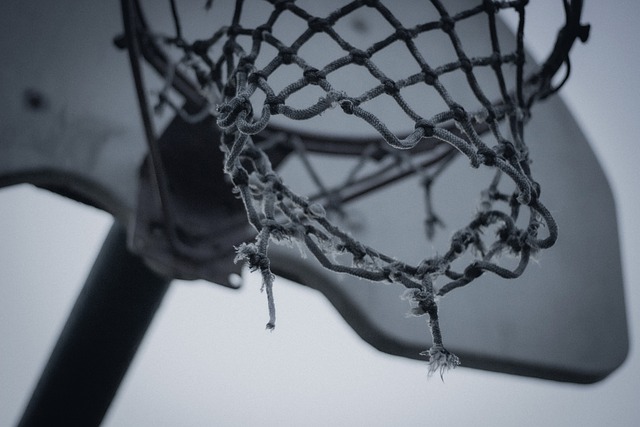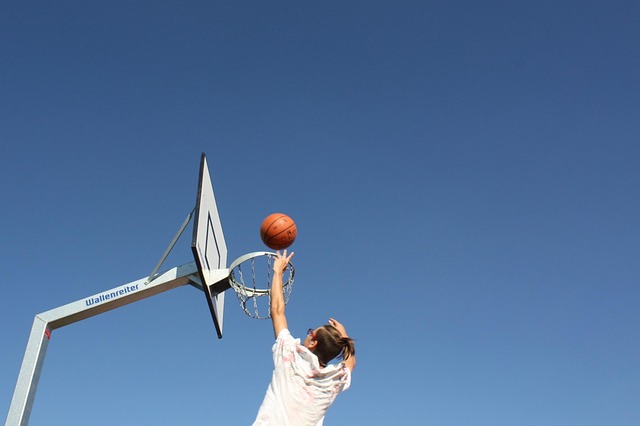Oregon's men's college basketball success stems from a fast-paced offense leveraging transition play and three-point shooting, adapted through coaching strategies emphasizing movement and screening. A robust defensive foundation built on fundamental teaching and drills is key to victory. Player development through tailored training sessions and feedback cultivates individual excellence and a growth mindset. Team chemistry, fostered by open communication and mutual respect, drives collective performance and decision-making. Adaptable in-game adjustments are crucial for navigating the unpredictable nature of men's college basketball competitions.
“Oregon’s men’s basketball team has garnered national attention with its dynamic playstyle. This article delves into the coaching strategies that propel the Ducks towards championship contention. From evaluating and enhancing their potent offense to fortifying a tenacious defensive game, each aspect is scrutinized. We explore player development, emphasizing individual skill growth, and the power of team chemistry. Furthermore, in-game adjustments are key; we analyze how Oregon’s coaches adapt tactics to outperform opponents. Discover the secrets behind Oregon’s success in the competitive landscape of men’s college basketball.”
- Evaluating Oregon's Offense: Key Strategies for Success
- Defense is King: Building a Strong Defensive Foundation
- Player Development: Coaching Individual Skills and Growth
- Team Chemistry: Uniting the Ducks for Maximum Performance
- In-Game Adjustments: Adapting to Opponents' Tactics
Evaluating Oregon's Offense: Key Strategies for Success

Evaluating Oregon’s offense in men’s college basketball requires a deep dive into their key strategies for success. The team has consistently emphasized a fast-paced, high-octane approach that relies heavily on transition play and three-point shooting. By leveraging their athleticism and speed, Oregon creates scoring opportunities in the paint and from beyond the arc, often catching opponents off guard with rapid transitions after defensive rebounds or steals.
To sustain this offensive prowess, coaching strategies focus on developing a robust system of ball movement and player movement without the ball. This includes setting screens, cutting to open lanes, and utilizing off-ball movement to create space for both drivers and shooters. Moreover, maintaining a balanced attack by ensuring a mix of inside and outside scoring is vital. The success of Oregon’s offense hinges on their ability to adapt, execute, and continuously refine these strategies to stay ahead in the competitive landscape of men’s college basketball.
Defense is King: Building a Strong Defensive Foundation

In men’s college basketball, defense is often the cornerstone of successful teams. Coaches in Oregon looking to build a competitive squad should prioritize establishing a strong defensive foundation. This starts with fundamental teaching—ensuring players understand and master basic defensive principles like proper positioning, help-side defense, and communication. By focusing on these fundamentals, coaches can create a framework that allows players to anticipate and react to offensive moves effectively.
A robust defense doesn’t just happen; it’s cultivated through rigorous drills and constant reinforcement. Implementing aggressive 2-3 zone defenses or man-to-man schemes requires players to be quick on their feet, mentally alert, and adept at reading the offense. Regular defensive scrimmages and competitive drills can enhance these skills, turning a team from merely adequate to exceptional. The goal is to foster a culture where defense is not just tolerated but embraced as the primary means of winning games in men’s college basketball.
Player Development: Coaching Individual Skills and Growth

In men’s college basketball, player development is a cornerstone of successful coaching strategies. By focusing on individual skills and growth, coaches can unlock each player’s full potential, fostering both on-court excellence and personal improvement. This involves tailored training sessions that cater to specific needs, from shooting drills for forwards to ball-handling exercises for guards. Coaches should also emphasize the importance of fundamental skills like footwork, passing, and defensive positioning, ensuring players develop a solid base upon which they can build advanced techniques.
Regular feedback and personalized instruction play a vital role in this process. Coaches should provide constructive critiques during practices and games, guiding players on how to refine their movements and decision-making. Additionally, creating opportunities for players to take ownership of their development—such as setting individual goals or leading skill-focused drills—prompts them to become more engaged and motivated learners. This holistic approach not only enhances performance but also nurtures a growth mindset among the team, fostering a culture of continuous learning and improvement in men’s college basketball.
Team Chemistry: Uniting the Ducks for Maximum Performance

In men’s college basketball, team chemistry is a vital component that can elevate a program from good to great. For the Oregon Ducks, fostering a united front on and off the court has been key to their recent successes. Coaches play a crucial role in building this camaraderie by promoting open communication, ensuring every player feels valued, and encouraging mutual respect. Through team-building exercises, shared goals, and a collective mindset, the Ducks have created an environment where individual talents gel seamlessly, resulting in maximum performance on game day.
This cohesion translates into enhanced trust, better collaboration, and improved decision-making under pressure. When players believe in one another’s abilities and are comfortable relying on their teammates, it creates a dynamic that can’t be taught. Oregon’s approach to team chemistry is a strategy that resonates across men’s college basketball programs, demonstrating that building a united squad is as essential as mastering offensive plays or defensive schemes for achieving consistent victories.
In-Game Adjustments: Adapting to Opponents' Tactics

In men’s college basketball, the ability to make in-game adjustments is crucial for success. Coaches must be adept at recognizing opponents’ tactical shifts and swiftly adapting their own strategies. This involves continuous assessment of game flow, player performances, and the effectiveness of previous plays. By maintaining a flexible approach, coaches can counter an opponent’s advantage and stay ahead in a dynamic, fast-paced environment.
Effective adjustments may include changing defensive schemes to contest specific offensive threats, adjusting offensive sets to exploit gaps in the defense, or making personnel changes to bring on players who match up better against certain opponents. Such adaptability not only requires strategic thinking but also fosters an agile and responsive team culture, essential for navigating the unpredictable nature of men’s college basketball competitions.






